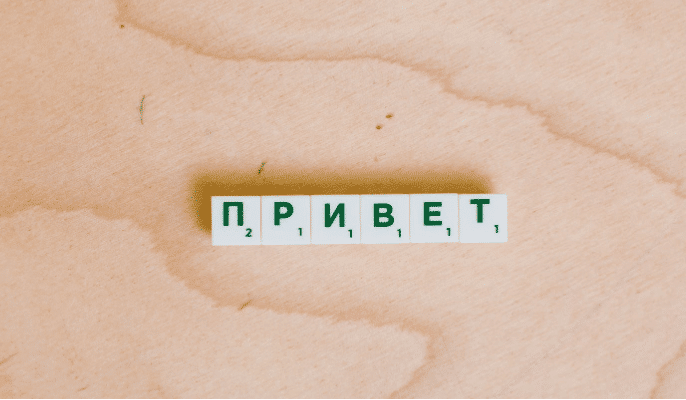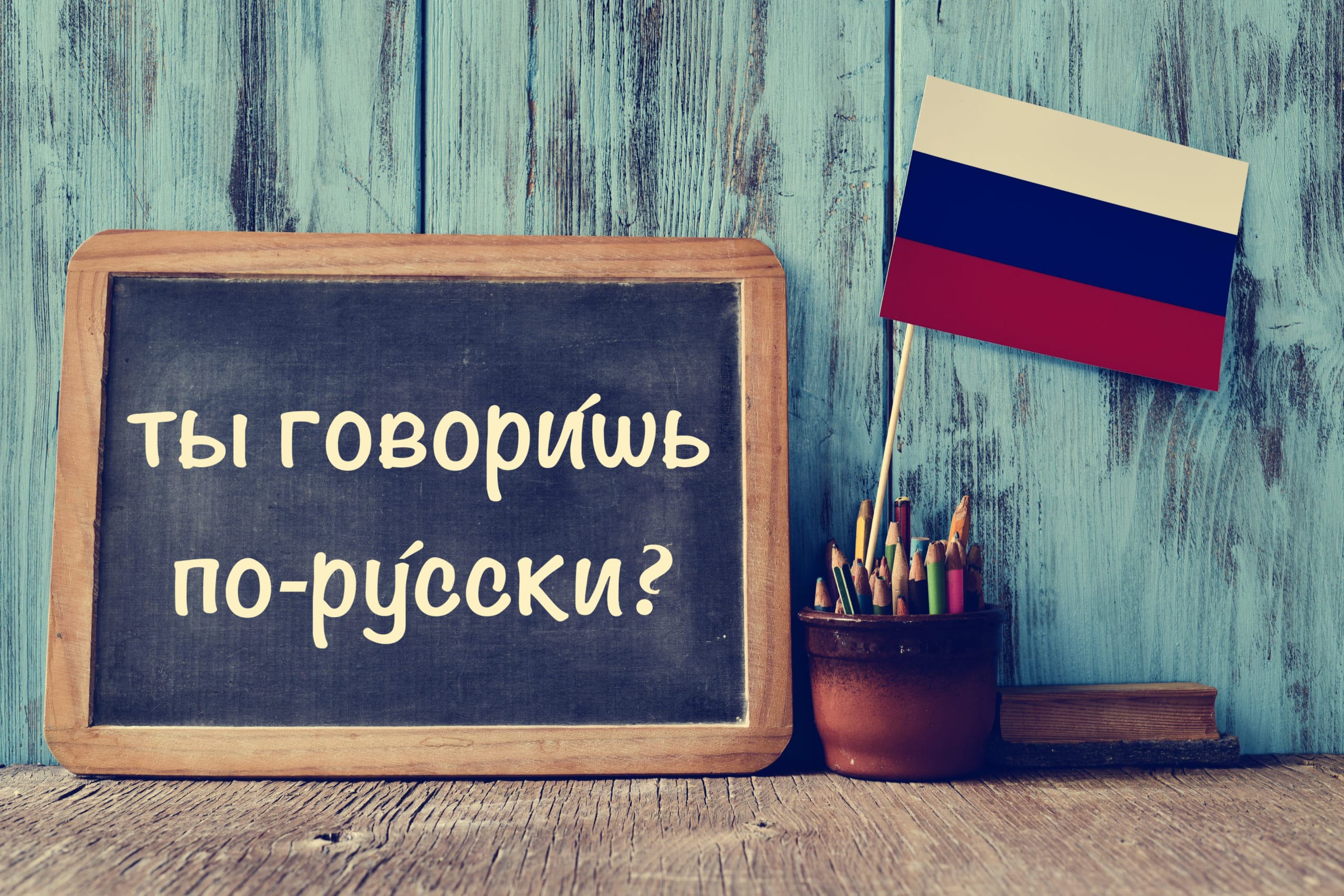Why learn Russian? From geopolitics to pop culture, the Russian language has long held a place in American society. Diplomats and descendants alike have picked up this Eastern Slavic language. In fact, it is the most spoken of its kind, boasting over 260 million speakers worldwide.
According to Florida State University’s Department of Modern Language and Linguistics, Russian isn’t just for students but also for aspiring academics, Peace Corps members, business people, culture fanatics and more. Not only is it an invaluable language in the office, but also in space: NASA works closely with Russia in order to send their astronauts into orbit.
Shockingly enough, FSU even says that “knowing Russian helps you to see the world differently[.] Russian speakers, who have more words for light and dark blues, are better able to visually discriminate shades of blue.”
While the USSR has been dissolved for the past three decades, the USA still has a lot to learn about their complex, useful and highly distributed native tongue: Russian. Even if you’re a beginner, we’ll help you understand some of the Russian basics as well as Russian phrases and words you can start practicing today!

Advice from a Babushka
A babushka (бабушка) is more than a fashionable headscarf, it’s also the Russian word for a grandmother or elderly woman.
According to writer and self-proclaimed Foreign Service Spouse Donna Gorman, who is raising her four kids in Moscow, babushkas aren’t afraid to critique your parenting style when necessary. The community writ large is inclined to offer a favor to parents and children in the form of a Metro seat or (potentially unsolicited) fashion advice.
For families in the United States, who are experiencing a growing diversity in living arrangements and parenting styles, this sort of communal caregiving can offer a fresh lens and helping hand.
Whether you’re a parent looking for linguistic and cultural diversity or a history buff wanting to travel back to the Tsardom of Muscovy, we think there is no better time than now to learn to speak the Russian language. Though the question remains: just how much time will you need to learn Russian?
How Much Time Do I Need to Learn Russian?
Luckily, our team at TruFluency has already compiled some useful information on how long it takes to learn a new language. The Foreign Service Institute classifies Russian as a Level 3: Difficult language to master. To master a language is a lofty goal, and it will take about 44 weeks to get there if you’re practicing every day.
But of course, that depends totally on those goals you set, the time you make, the desire you have, and the support you seek.
We’re on your side, and we’ve put together some of the basic elements and vocab to kick start your Russian journey. What better time to commence those 44 weeks than now?
Starting with A: The Russian Alphabet
Russian employs the Cyrillic script to write their alphabet, also called азбука (pronounced asbuka). There are 33 letters in total which include:
- 21 consonants: б, в, г, д, ж, з, к, л, м, н, п, р, с, т, ф, х, ц, ч, ш, щ, й
- 10 vowels: а, е, ё, и, о, у, ы, э, ю, я
- and 2 signs that are used to modify the pronunciation of a preceding consonant and/or a following vowel: ь, ъ
Some of these letters may look intimidating as they can diverge greatly from the Latin alphabet, but don’t worry. Each letter makes a unique sound which will become second nature to you as you spend the time getting to know them.
Plus, the Cyrillic alphabet starts with “A” so that’s already a familiar start. Fully written out in order, with both upper- and lowercase letters, the Russian азбука looks like this:
А а, Б б, В в, Г г, Д д, Е е, Ё ё, Ж ж, З з, И и, Й й, К к, Л л, М м, Н н, О о, П п, Р р, С с, Т т, У у, Ф ф, Х х, Ц ц, Ч ч, Ш ш, Щ щ, Ъ ъ, Ы ы, Ь ь, Э э, Ю ю, Я я
Mastering these 33 sounds is the foundation of the Russian language. Start off on the right foot with a native Russian speaker today.

15 Basic Russian Words and Phrases for the Beginner Student
You didn’t think we would pass by the chance for a little speaking practice, did you? After learning the sounds of the Russian alphabet, try out these simple sentences below.
5 Russian Verbs
To be – быть (byt’)
To live – жить (zhit’)
To go – идти (idti)
To think – думать (dumat’)
To see – видеть (videt’)
5 Basic Questions in Russian
What is your name? – Как тебя зовут? (Kak tebya zovut)
How are you? – Как поживаешь? (Kak pozhivayesh’)
Where are you from? – Откуда Вы? (Otkuda vy)
Can I buy this? – Могу я это купить? (Mogu ya eto kupit’)
Why not? – Почему нет? (Pochemu net)
5 Basic Russian Phrases
I am American – Я американец (YA amerikanets)
The food is delicious – Еда очень вкусная (Yeda ochen’ vkusnaya)
I speak Russian – я говорю на русском языке (ya govoryu na russkom yazyke)
There is my hotel – Это мой отель (Eto moy otel’)
I love the snow – Я люблю снег (YA lyublyu sneg)
Let’s not Russian to Things…Set a Goal That is Right for You
Get it? Let’s not rush into things… rush in… Russian. Anyways.
Language acquisition is no walk in the park, especially when your goal is a language with a foreign sound pattern and word order. And unlike English-Spanish, there aren’t a ton of cognates. All in all, it’s going to take some time to master the elements of Russian in order to add it to your linguistic repertoire.
Like with any new practice you tackle, you’ll want to set goals: Why do I want to learn this language? In which settings do I want to be proficient?
After you have your metrics figured out, you’ll want to determine how much time you’re able and willing to dedicate to your new skill: One hour before work? Or two after dinner? Take a moment to make a realistic schedule, and be sure to find a tutor that is right for you depending on quality and availability.
Don’t wait to start seeing all the shades of blue the world has to offer by learning the Russian language. Schedule your trial class today.





